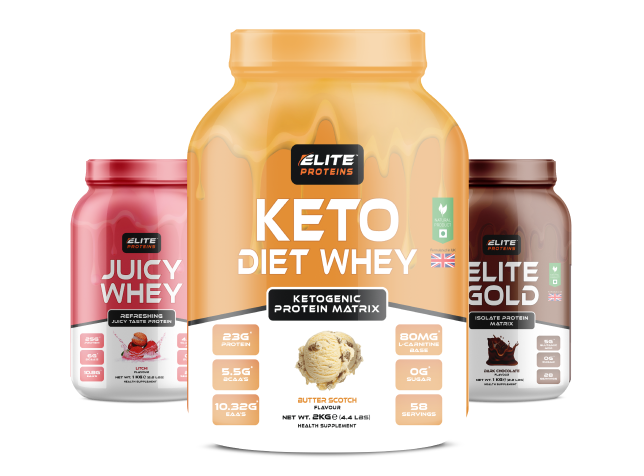How Much Protein Do You Really Need? – A Complete Guide

Introduction – Understanding Protein and Its Role
Protein is essential for building and repairing muscles, supporting immune function, and maintaining overall health. Whether your goal is to build muscle, lose weight, or simply improve your nutrition, knowing your daily protein requirement is the first step to achieving results.
How Much Protein Do You Really Need? – A Complete Guide
This guide explains exactly how much protein you need, how to calculate it, and the best protein sources — from whole foods to supplements like Elite Proteins Whey.
Why Your Daily Protein Requirement Matters
Your daily protein requirement depends on factors like age, weight, gender, activity level, and fitness goals.
- For sedentary adults: About 0.8 grams per kilogram of body weight.
- For active individuals or athletes: 1.6–2.2 grams per kilogram of body weight.
- For fat loss: Higher intake can help preserve lean muscle mass.
Maintaining the right protein intake supports better muscle recovery, improves performance, and keeps you feeling fuller for longer.
Related Internal Link: Elite Proteins 100% Whey Protein Powder – Premium quality protein for your daily needs.
How to Calculate Your Protein Needs
The simplest method is to use a protein calculator or follow this formula:
Body weight (kg) × Protein factor (grams)
- Sedentary: 0.8g/kg
- Active: 1.6–2.0g/kg
- Muscle gain: 2.0–2.2g/kg
Example: A 70 kg person aiming to build muscle would need around 140 grams of protein daily. This can be achieved through a mix of protein foods and supplements like ISO ELITE.
Top 10 Protein Foods
Here are some of the best protein sources with their approximate protein content per 100g:
- Chicken Breast – 31g
- Eggs – 6g per egg
- Salmon – 20g
- Paneer – 18g
- Greek Yogurt – 10g
- Lentils – 9g
- Almonds – 21g
- Quinoa – 4g
- Whey Protein – 24g per scoop
- Tofu – 8g
Related Internal Link: Elite Proteins ISO ELITE – Perfect for Fast Recovery
Whey Protein vs Whole Foods
Whole foods should be your primary source of protein, but whey protein is a practical solution to meet your daily requirement quickly and conveniently.
Advantages of Whey Protein:
- Quick absorption
- Complete amino acid profile
- Ideal post-workout recovery
Including a combination of both food and supplements ensures optimal results.
How Much Protein to Build Muscle
For muscle growth, the recommended intake is 1.6–2.2g of protein per kilogram of body weight. Distribute your intake evenly across the day for best results.
Example Plan for 75kg individual:
- Breakfast: Eggs with whole grains
- Lunch: Chicken or paneer with vegetables
- Post-workout: ISO ELITE Whey Protein
- Dinner: Fish or lentils
Types of Protein Supplements
Understanding types of protein helps you choose what fits your needs:
- Whey Concentrate: Balanced nutrition, affordable
- Whey Isolate (ISO ELITE): Fast absorption, low lactose
- Casein: Slow release, ideal before bed
- Plant-Based: Vegan-friendly options from peas, brown rice, or soy
Sources of Protein – Plant and Animal
Animal Sources: Eggs, chicken, fish, dairy products
Plant Sources: Lentils, beans, tofu, nuts, quinoa
Combining plant and animal proteins ensures a complete amino acid profile for overall health.
Whey Dosage and Safety
A standard dosage is one to two scoops of whey protein daily, depending on dietary intake from other sources. Excessive protein consumption in healthy individuals is generally safe, but balance and variety in diet remain important.
External Reference: Mayo Clinic – Protein Intake
Conclusion How Much Protein Do You Really Need?
Your daily protein requirement is personal and based on your body, goals, and activity level. Using a protein calculator helps set a precise target, and combining whole food sources with supplements like Elite Proteins Whey makes it easier to reach your goal.
Key Takeaways:
- Sedentary: 0.8g/kg
- Active or muscle gain: 1.6–2.2g/kg
- Mix whole foods and supplements for balance
- Use a protein calculator India for accurate results
How Much Protein Do You Really Need? Call to Action:
Start meeting your protein goals with Elite Proteins Whey and fuel your fitness journey with the best in nutrition.

